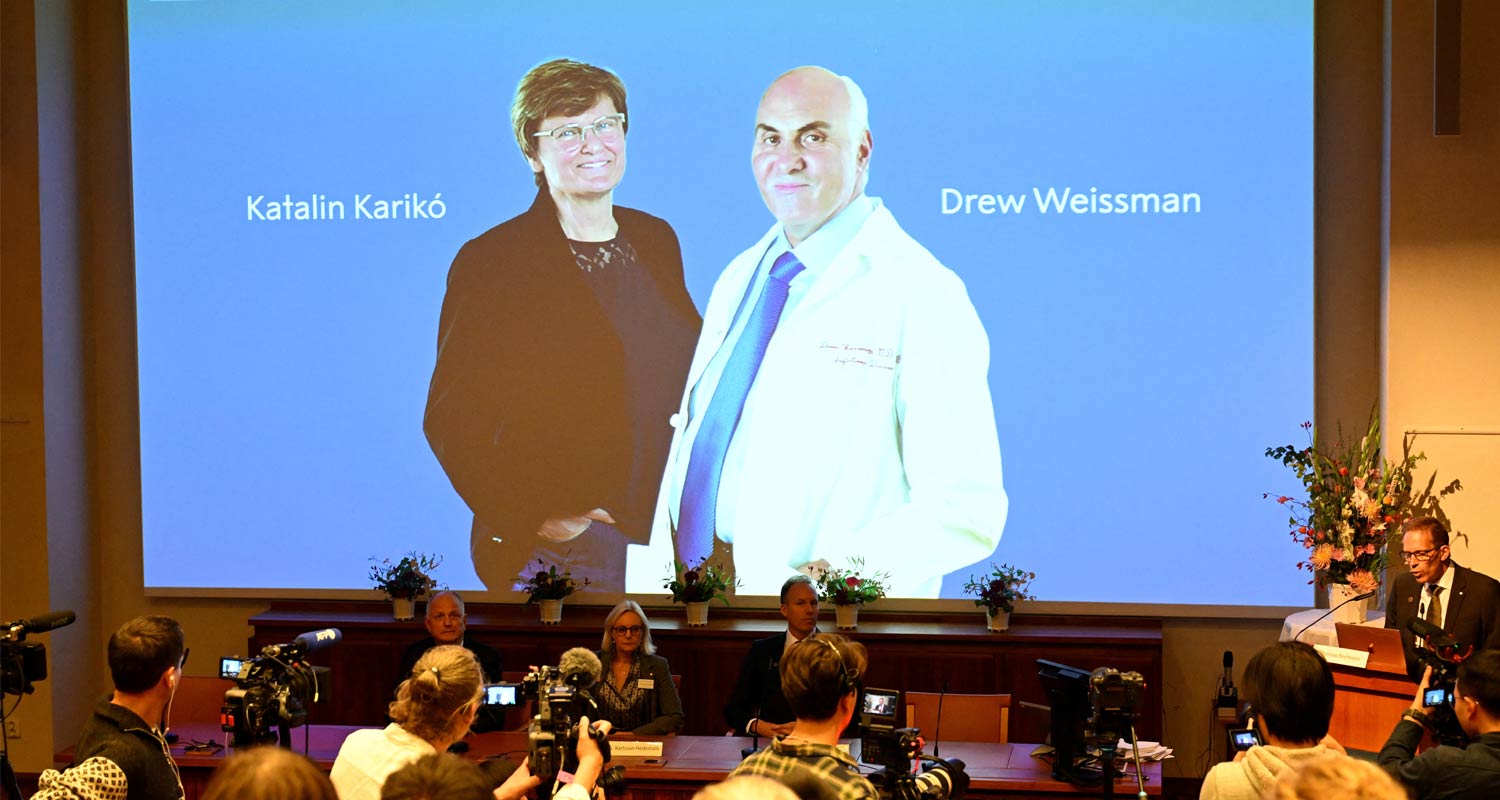
Hungarian scientist Katalin Karikó and US colleague Drew Weissman, who met in line for a photocopier before making mRNA molecule discoveries together that paved the way for Covid-19 vaccines, won the 2023 Nobel Prize for Medicine on Monday.
“The laureates contributed to the unprecedented rate of vaccine development during one of the greatest threats to human health in modern times,” the Swedish award-giving body said in the latest accolade for the pair.
The prize, among the most prestigious in the scientific world, was selected by the Nobel Assembly of Sweden’s Karolinska Institute medical university and comes with 11 million Swedish crowns (about R19-million) to share between them.
Karikó was senior vice president and head of RNA protein replacement at BioNTech until 2022 and has since acted as an adviser to the company. She is also a professor at the University of Szeged in Hungary and adjunct professor at the University of Pennsylvania’s Perelman School of Medicine.
Weissman is professor in vaccine research at the Perelman School.
The two laureates jointly developed so-called nucleoside base modifications, which stop the immune system from launching an inflammatory attack against lab-made mRNA, previously seen as a major hurdle against any therapeutic use of the technology.
German biotech firm BioNTech said in June that about 1.5 billion people had received its mRNA shot, co-developed with major drugmaker Pfizer, across the world.
Nobel Prize
The European Medicines Agency earlier this year cited estimates that in the first year of the pandemic alone, coronavirus vaccines were estimated to have helped save almost 20 million lives globally. BioNTech and Pfizer’s mRNA vaccines were the most widely used Covid shots used in the Western world.
The Nobel winners showed in 2005 that adjustments to nucleosides, the molecular letters that write the mRNA’s genetic code, can keep the mRNA under the immune system’s radar.
“This year’s Nobel Prize recognises their basic science discovery that fundamentally changed our understanding of how mRNA interacts with the immune system and had a major impact on society during the recent pandemic,” said Rickard Sandberg, member of the Nobel Assembly at the Karolinska Institute.
Read: Covid vaccine you inhale is here
“Together they have saved millions of lives, prevented severe Covid-19, reduced the overall disease burden and enabled societies to open up again.”
Messenger or mRNA, discovered in 1961, is a natural molecule that serves as a recipe for the body’s production of proteins. To use man-made mRNA to instruct human cells to make therapeutic proteins, long regarded as impossible, was commercially pioneered during the pandemic.
 The technology means a radical break from established biotech medicines, which are generated in complex reactors by genetically modified living cells, then isolated and purified. Messenger RNA, by contrast, works like a software that can be injected into the body to instruct human cells to churn out the desired proteins.
The technology means a radical break from established biotech medicines, which are generated in complex reactors by genetically modified living cells, then isolated and purified. Messenger RNA, by contrast, works like a software that can be injected into the body to instruct human cells to churn out the desired proteins.
Prospective uses include drugs against cancer and vaccines against malaria, influenza and rabies.
The medicine prize kicks off this year’s awards with the remaining five to be unveiled in the coming days.
The prizes, first handed out in 1901, were created by Swedish dynamite inventor and wealthy businessman Alfred Nobel, and are awarded for achievements in science, literature and peace, and in later years also for economics.
The Swedish king will present the prizes at a ceremony in Stockholm on 10 December, the anniversary of Nobel’s death, followed by a lavish banquet at city hall.
Read: Haven’t had Covid yet? It could be more than just luck
Last year’s medicine prize went to Swede Svante Paabo for sequencing the genome of the Neanderthal, an extinct relative of present-day humans, and for discovering a previously unknown human relative, the Denisovans.
Other past winners include Alexander Fleming, who shared the 1945 prize for the discovery of penicillin, and Karl Landsteiner in 1930 for his discovery of human blood groups. — Niklas Pollard, Johan Ahlander and Ludwig Burger, with Terje Solsvik, (c) 2023 Reuters

